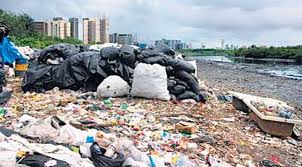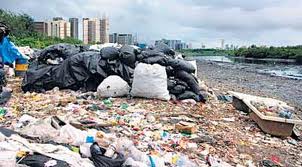
India is the second most populous country, which has about 16% of the world population and 2.4% of the land area. Rapid industrialization in the last few decades had led to the depletion of precious natural resources in India continuously. Furthermore, the rapid industrial developments have, also, led to the generation of huge quantities of hazardous wastes, which have further added to the environmental problems in the country by depleting and polluting natural resources. Therefore, it is the need of the hour for sustainable utilization of natural resources and its protection from toxic releases by hazardous waste is vital for sustainable socio-economic development.
Hazardous waste management is a new concept for most of the Asian countries including India. The lack of technical and financial resources and the regulatory government bodies for the management of hazardous wastes in the past had led to the unscientific disposal of hazardous wastes in India, which ultimately lead to serious risks to human life and the biodiversity as a whole. Waste management is a problem that all of us face. No matter how posh an area might be, miserable waste management can be seen. Public parks and roads are often littered with garbage. The processing of the garbage is also not given much concern. It is thrown in the dumping grounds without following the rules required for its management.
Majority of Indian rivers are polluted because of industrial and human waste. There have been efforts by the state, but they are too little to be of some benefit for the poor fate of the rivers. There has been a sudden increase in the number of deaths of fresh water fishes. The dolphins in the Ganga River have been choking to death in the highly toxic water. There have been programmes like Ganga Action Plan (GAP) being run by the Indian government for cleaning and protection of rivers from industrial wastes but there aren`t any significant results found till now. The problem is not restricted to rivers or industrial towns.
It is to be pointed out that, who is responsible? The state or the public? Public often complain that the government is responsible for clearing out the mess. On the other hand the government feels the citizens are not doing their bit as they continue littering. The thing is that there should be a partnership between the two, the state should provide the means and the people should take initiative.
At the ground level we should promote waste reduction. Waste reduction or waste prevention, means using less material to get a job done. Waste prevention methods help create less waste in the first place. Because it avoids recycling, composting, landfilling, and combustion, it can help reduce waste disposal and handling costs. An example of source reduction is buying products that use less packaging (buy larger containers or refill containers with bulk purchases). It also conserves resources.
People have to separate bio-degradable and non-degradable waste at their homes itself so that waste can be managed easily. This will help in efficient waste management to be done by government employees. Solid-waste materials should be collected by visiting every household. To avoid pollution, the waste should be directly dumped into the tractors. It can be done more efficiently by organizing self help groups.
Under present circumstances, solid-waste management is a challenge as people have started opposing areas being marked for waste management; as they cause damage to the environment. A community-centered scheme involving all would help tackle the problem. Realizing how grim the situation is, the government, NGOs and the local community has been working hard to improve the situation. NGOs have mobilized people and are working with hospitals to manage and process their waste properly. Many state governments are providing free recycling and garbage sorting facilities to local communities. Delhi government has installed many garbage plants and have provided separate dustbins for bio-degradable and non- degradable waste.
India is the first country that has made constitutional provisions for protection and improvement of the environment. In the Directive Principles of State Policy of the Constitution, Article 48-A of Chapter IV enjoins the state to endeavor for the protection and improvement of the environment and for safeguarding the forest and wild life of the country. In Article 51 A (g) of the Constitution, one of the fundamental duties of every citizen of India is to protect and improve the natural environment including forests, lakes, rivers and wild life and to have compassion for living creatures.
Instead of relying on the government completely for the proper disposal of waste generated by us, we must do our duties as a responsible citizen first. We must be sensitive for a hygienic environment and society like we are in our respective home. We have to come up from our comfort zones and take the much needed step from our home itself. Living in a clean environment will not be a distant dream if everyone contributes a little for their environment. The waste management can be a success if all of us do our bit for the environment with full co-operation from the government and NGOs. Proper waste management today for a better tomorrow.

Leave a Reply